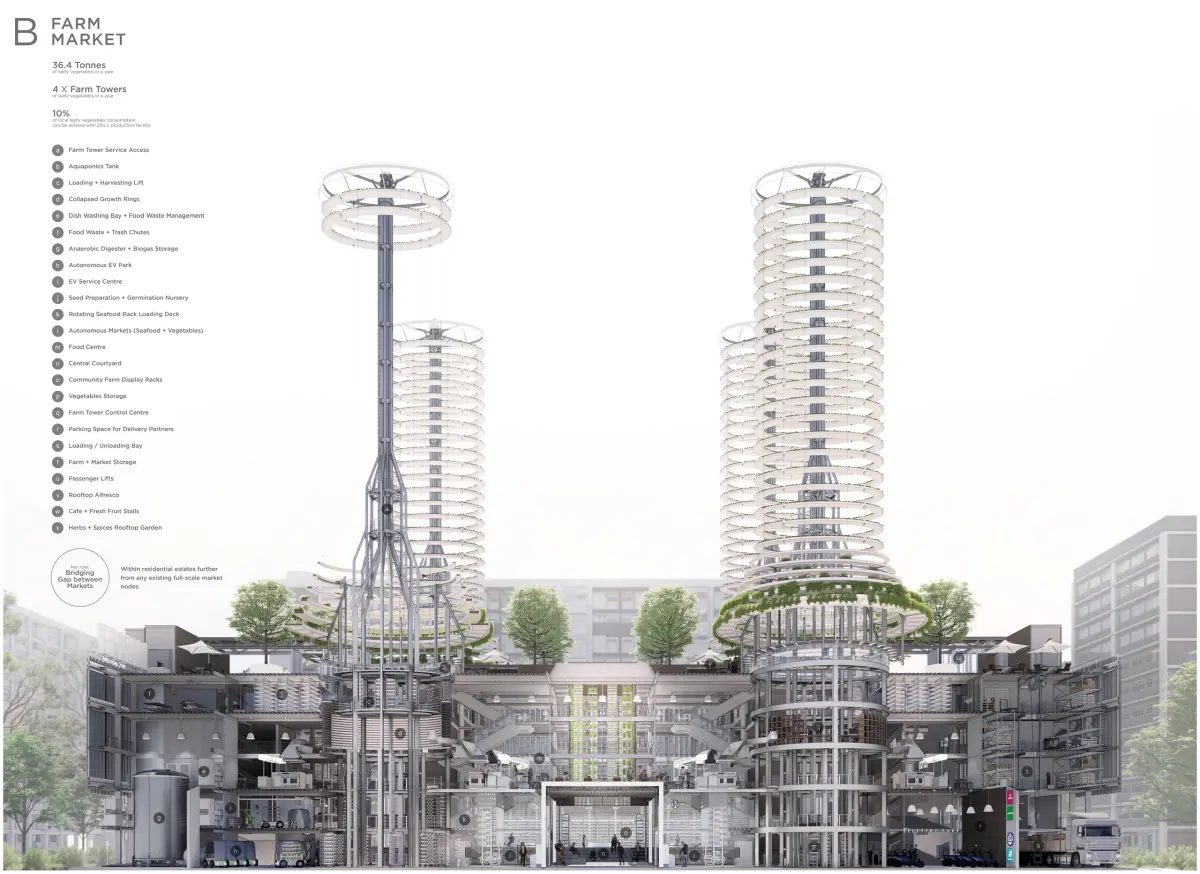
Singapore as The Farm City
BY Mok Shi Qi Andy
SUPERVISED BY Assoc. Prof. Joseph Lim (Dr.)
STUDIO THEME NEW TYPES
Abstract
Humans have built extensive networks of vehicular roads as transportation was seen as an essential component of cities. With the rising population and decreasing arable land on earth, cities will eventually have to feed their population within cities, making food production an essential function. Shortage of essential goods caused by transportation restrictions during the Covid-19 pandemic experienced by numerous cities has exposed the vulnerability of the existing food supply chain, and the importance of decentralised local food production within cities.
In a land-scarce city state, the Farm City envisions the entire city landscape of Singapore as an urban farm, with its processes supported by the various existing components of the city for space, water, energy, labour, and transportation. Ranging from the conversion of underutilised structures to new structures, farm processes will be integrative with the existing city fabric, much like roads in most cities.
With the rising cost of petroleum and vehicle ownership, along with the further development of the public transportation system, the large floor area multi-storey car parks within public housing neighbourhoods will likely be underutilised if private car ownership falls. While more space-efficient parking solutions such as elevator car parks might be sufficient for housing estates, the 1035 multi-storey car parks can be repurposed into production and market farms to decentralised food production, and provide a boost in floor area to strengthen the food security of Singapore.
Supervisor Comments
The shortcomings of centralised food distribution systems worldwide is exacerbated by pandemic conditions. While the local supply chain is reliant on alternative sources of imported food, the thesis questions the effectiveness of landplot consumption by incumbent agrotech farms and the inefficient modes of distribution by road. The yield per sqm of footprint in car park structures for new market facilities, fruit and vegetable farms is surprisingly viable when growing food in neighborhood and reservoir sites. The integrated farm and wholesale facilities offer novel retail market structures as a new type in urban architecture
- Assoc. Prof. Joseph Lim (Dr.)